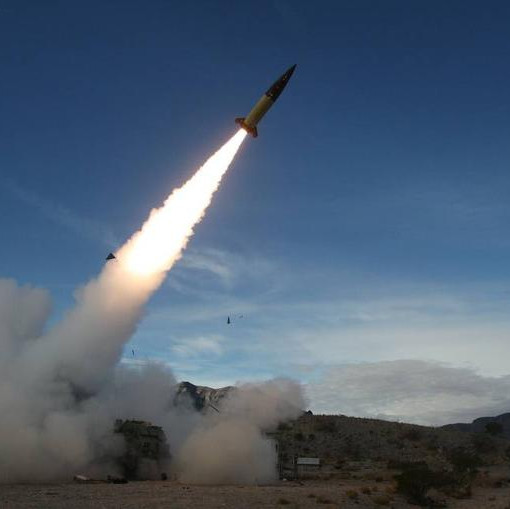The US administration will work to return to the G8 format with Russia involved. This came from Secretary of State Mike Pompeo in an interview with Fox News. He was asked whether Russia should be invited to rejoin the Group of Seven. "Yes, the President thinks so," Pompeo replied. Asked if he personally agreed with the idea, the Secretary of State said: " The President [of the United States] thinks that’s what we should do. I work for the President. Of course we’re going to work towards that end."At the same time, the Secretary of State did not mention any preconditions.
Earlier, at a press conference on the outcome of the recently held Biarritz G7 summit, US President Donald Trump said he was inclined to seek the revival of the G8 format of industrialized powers with the involvement of Russia, despite the initiative's unpopularity within the American establishment and regardless of domestic political motives. However, because of differences over Moscow's return of the Group of Seven, the American leader quarreled with Biarritz G7 summit participating countries' leaders, who, except Italy, failed to share Trump's viewpoint on this matter.
Recent statements by Donald Trump – and Mike Pompeo now as well – indicate that the United States is serious about having Moscow back in the G8. There are several reasons for this. First, Washington seems to have finally realized that solving global problems is simply impossible without Russia. By the way, Republican Senator Marco Rubio recently said about the revision of Washington's attitude to Moscow. In an interview with Politico, he stressed that the US cannot isolate or ignore Russia. "We can't ignore Russia or stop dealing with them, but we should do so with clear eyes," he said.
Secondly, a presidential election is going to be held in the United States next November. And it is very important to Donald Trump to show his voters what a "cool" politician he is, who managed to invite Russian leader Vladimir Putin, who has recently gained great prestige and popularity around the world, to the G8 summit to be held in the United States in June 2020. Third, in an effort to bring Russia back into the format of the Group of Eight, Trump may be seeking Russia to be part of the West, not a participant of the tandem with China which scares Washington a lot.
But here's the real issue. Does Russia agree to revive the G8 format? This week, Press Secretary to the President of Russia Dmitry Peskov told reporters that the return to the Group of Eight was not a goal in itself for Russia, because in a lot of areas the G20 format appears as the most effective one. At least, according to Peskov, Moscow "is not going to foist itself on anyone."
Here it is appropriate to cite Vladimir Putin's statement about Russia's return to the G8 format, delivered during the August 19 meeting with French President Emmanuel Macron. "How can I return to an organization that does not exist?" the Russian leader said, answering journalists' questions. "Regarding a possible eight-country format, we do not reject anything. It was Russia’s turn to host a G8 summit, but our partners did not come. We look forward to seeing our partners anytime, but within the G7 framework. But there are other international organizations playing a noticeable and substantial role in international affairs."
In light of this statement by President Putin, one can't but agree with the opinion of some analysts, including the Western ones, who believe that in the current dynamic environment, Russia no longer needs the "Group of Seven", and its membership makes no sense anymore. And the major reason is that after 2014, Moscow has been placing its stake on the present-day world's multipolarity, with the G7 not being a representative of this multipolarity. Rather, it appears as a union of US allies, which looks like a thing of the past Russia is clearly not interested in. Apparently, this is why Moscow has shown little interest in returning to the Group of Eight.
Indeed, the recent years have seen the G7 format plunging into a crisis that is becoming increasingly evident in the group's lack of coherence and discord among its members. At its meetings haven't seen decisions to really affect the fate of the world for a long time. This year in Biarritz, for example, the leaders of the G7 member states could not even agree on the text of a comprehensive communiqué following the summit, limiting themselves to a one-page document of insignificant content. The simple truth is that G7 members cannot reach common ground. On the one hand, the cause lies in the unpredictability of US President Donald Trump who clearly dominates the rest of the Group of Seven. On the other hand, there are certain issues in relations between the group's separate member states. And over all of the above mentioned things there is a considerable question of the gradual transition from Western (think American) supremacy to a multipolar world.
In this regard, it is small wonder that the role of another, broader format, which is not only Western now, has witnessed a significant increase in recent years. This refers to the "Group of Twenty" (G20). It is on this format, along with the SCO, BRICS and OPEC+, that Russia has been placing its main stake because of its diversity and because of this group's being not exclusively a union of US allies, like G7. According to the West, Russia's exclusion from the Group of Seven did make sense, while its return is of no particular importance in the present context.
For the foregoing reasons, one should hardly wait for Russia's return to the G8 format. Although it is not inconceivable that Vladimir Putin will accept Donald Trump's invitation, if received officially, and visit the G7 summit in the United States next summer. However, let's not rush things...









